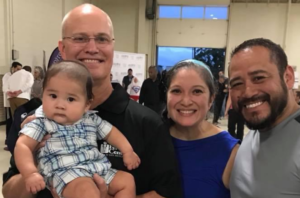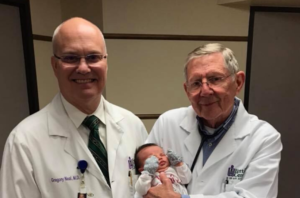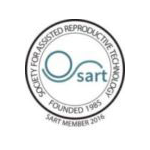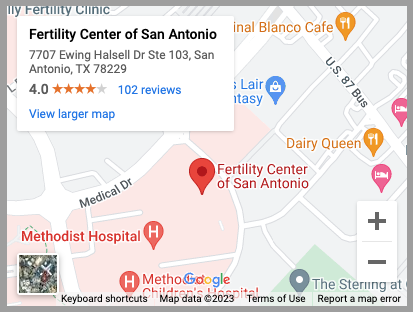Discover Your Path to Parenthood Today.
Egg Freezing FAQ
Women who are considering egg freezing as a means to preserve their future fertility often have many questions regarding the process, the timeframe, and candidacy. Knowing the best time to freeze eggs, how long can they remain frozen, and how safe the procedure is can help provide clarity before treatment. This procedure provides women who wish to delay pregnancy or women who have been diagnosed with cancer an opportunity to have a family in the future. During a private consultation, our knowledgeable staff at Fertility Center of San Antonio in San Antonio, TX, can answer additional egg freezing FAQ to ensure you feel confident in your decision.
When Should I Freeze My Eggs?
If you wish to delay childbearing to focus on your career or education, or if you simply have not found the right partner, you may wish to freeze your eggs to ensure the possibility of a family in the future. In addition, women who must have been diagnosed with cancer may wish to freeze their eggs in the case of sterility after treatment.
This procedure provides women who wish to delay pregnancy or women who have been diagnosed with cancer an opportunity to have a family in the future.
It is best to freeze eggs during your prime reproductive years, between your early 20s and early 30s (or before cancer treatment). As you age, so do the quality and quantity of your eggs.
What is Involved in Egg Freezing?
The overall egg freezing cycle takes about four to six weeks. For two to three weeks, you will receive hormone injections to stimulate your ovaries, so they produce an adequate number of healthy eggs. Once the eggs are mature, your doctor can perform a minimally invasive egg retrieval procedure, similar to that performed during in vitro fertilization (IVF). After removing the eggs from your ovaries, we can immediately freeze them.
Is Egg Freezing Safe?
Yes, this procedure is safe and can help assist you in planning your family in the future. While complications are rare, women who undergo egg retrieval do have a risk of developing ovarian hyperstimulation syndrome, which can cause abdominal cramping and bloating.
According to recent research, over 5,000 babies have been conceived and birthed from frozen eggs in the United States, with a 75 percent success rate. There is also no increased rate of birth or chromosomal defects when a baby is conceived using a frozen egg, as compared to a natural conception.
How Effective is Egg Freezing for Patients Over the Age of 38?
The prime period for reproduction is between the ages of 20 to 29, and egg quality and quantity declines progressively over time. Women who freeze their eggs over the age of 38 have a lower chance of conceiving later on in life due to poor egg quality, hormone deficiencies, premature menopause, and other reproductive issues related to age.
Have More Questions?
If you are interested in learning more about the egg freezing process, please schedule a personal consultation with one of our doctors at Fertility Center of San Antonio. We would be glad to answer any of your questions, review the costs involved, and provide clarity and understanding to assist you with this very personal decision. You can contact us online or by calling (210) 692-0577.











